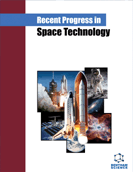Abstract
Perception allows us to represent, interpret, and interact with our world, a process that depends on the human brain and on its ability to adapt to change. Confined space quarters exert harsh physical and mental rigors on humans, which can be detrimental to human brain function. However, technology can alleviate the effect of severe environmental conditions. When technology is compatible with our brain's mode of operation, the interface becomes intuitive, and human error is less likely. Technology systems and patents that support effective interaction between perception and our environment, along with their evolution, could lead to improved function and even comfort under strenuous conditions.
Keywords: Perception, virtual reality, augmented reality, neural systems, circadian rhythms, human brain, cognition, environment, patent.
 8
8















